University of Miami Health System Cardiology has been a pioneer in the cardiac arena and is committed to providing the highest-quality cardiovascular care in Florida and beyond. In 2008, UHealth surgeons performed Florida's first Transcatheter Aortic Valve Replacement (TAVR).
Our experts have subsequently performed thousands of procedures, continually innovating to advance interventional cardiac care for even the most complex, high-risk patients. Some of the structural heart interventions we perform include:
- Heart Valve Interventions: TAVR and MitraClip, with referrals from physicians across the region for their most challenging cases.
- Stroke and Heart Defect Care: In collaboration with UHealth Neurology, we offer comprehensive care to patients who have suffered a stroke and require the closure of a heart defect known as patent foramen ovale (PFO).
- Paravalvular Leak Closure: We have a multidisciplinary team specializing in imaging and treating patients with small defects around artificial valves.
- Minimally Invasive Cardiac Surgery: UHealth offers minimally invasive cardiac surgery, focusing on advanced techniques that reduce recovery time, pain, and risk of complications compared to traditional open-heart surgery.
Structural Heart and Valve Disease
Structural heart disease refers to a defect in the heart's valves, walls, or chambers. The condition can be congenital (present at birth) or develop over time. The Structural Heart Valve Program at UHealth is led by a multidisciplinary team specializing in both congenital and acquired structural heart conditions. We utilize the latest technology and techniques to deliver the highest quality, patient-centric care.
Common Types of Structural Heart Disease
- Aortic Valve Disease
- Congenital Heart Diseases (e.g., Atrial Septal Defect, Ventricular Septal Defect)
- Hypertrophic Cardiomyopathy
- Mitral Valve Disease
- Tricuspid and Pulmonic Valve Disease
- Heart-related Stroke (LAAO, PFO)
Diagnosing Structural Heart and Valve Conditions
Most of our structural heart disease patients are referred by general cardiologists, interventional cardiologists, or cardiovascular surgeons. Early diagnosis is critical to successful treatment, and we begin with a thorough physical exam followed by additional tests, which may include:
Electrocardiogram (ECG)
Wires (electrodes) attached to adhesive pads on your skin measure electrical impulses from your heart. An ECG can detect enlarged chambers of your heart and abnormal heart rhythms.
Cardiac Computed Tomography (CT) Exam
Used frequently to evaluate valve disease, cardiac CT gives detailed pictures of the heart's actual shape and size. In some cases, cardiac MRI, which uses magnetic fields and radio waves to create images of the heart, may be useful.
Cardiac Magnetic Resonance Imaging (MRI) Scans
Cardiac MRI is a noninvasive procedure that produces images of the heart and blood vessels. It can aid doctors in diagnosing complex heart diseases and provide precise information about how the heart functions.
Treatments
Historically, structural heart diseases were treated with open-heart surgery. Today, less invasive approaches, such as transcatheter valve replacements (TAVR) or percutaneous valve replacements, offer several advantages, including shorter procedure times, minimal scarring, reduced blood loss, decreased pain, shorter hospital stays, faster recovery, and fewer complications.
UHealth offers a range of minimally invasive procedures, depending on the specific condition. Home to the Elaine and Sydney Sussman Cardiac Catheterization Lab, we provide advanced imaging capabilities and pinpoint accuracy for new and complex procedures.
Treatments include:
- Transcatheter Aortic Valve Replacement (TAVR): a minimally invasive procedure that repairs the aortic valve without removing the old, damaged valve. This approach involves placing a replacement valve via a catheter, which then takes over regulating blood flow.
- Transcatheter Edge-to-Edge Repair (TEER): for patients with mitral valve regurgitation (or a leaky heart valve), mitral valve repair with the Mitraclip® or Pascal® procedure is a minimally invasive option. A mechanical clasp using a catheter is guided to your heart through the femoral vein. The clamp reduces leakage and associated symptoms of regurgitation.
- Left Atrial Appendage Occlusion (LAAO)
- Alcohol Septal Ablation
- Mitral Clip
- Amplatzer Septal Occluder
Meet Our Team
-
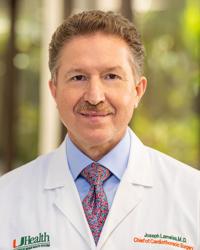
Joseph Lamelas, MD
Structural Heart Disease Cardiology, Cardiothoracic Surgery, Cardiac Surgery -
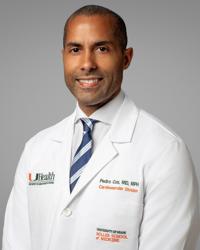
Pedro R Cox-Alomar, MD
Structural Heart Disease Cardiology, Interventional Cardiology, Cardiology -
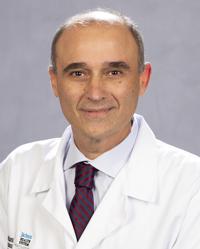
Joao Roberto Breda, MD
Structural Heart Disease Cardiology, Cardiac Surgery, Cardiothoracic Surgery, Transplant Surgery, Lung Transplant Surgery, Heart Transplant Surgery -
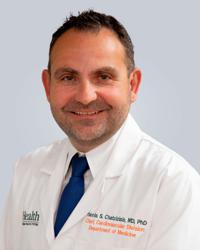
Ioannis S Chatzizisis, MD, PhD
Structural Heart Disease Cardiology, Cardiac Imaging, Interventional Cardiology -
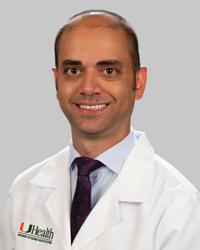
Mehrdad Ghahramani, MD, FACC
Structural Heart Disease Cardiology, Cardiology, Cardiac Imaging -
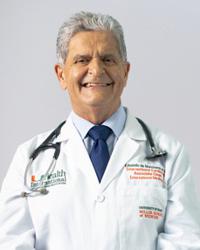
Eduardo J DeMarchena, MD
Structural Heart Disease Cardiology, Interventional Cardiology -
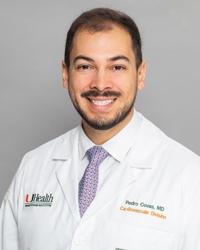
Pedro Covas, MD
Structural Heart Disease Cardiology, Cardiac Imaging, Cardiology -
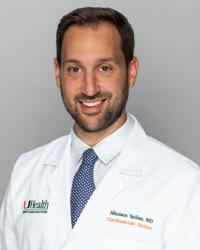
Nikolaos Spilias, MD
Structural Heart Disease Cardiology, Interventional Cardiology -
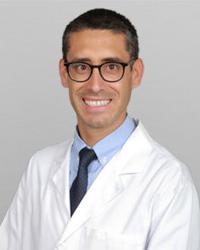
Andrew Daniel Bromley, MD
Preventive Cardiology, Structural Heart Disease Cardiology, Cardiology
Why Choose UHealth?
The UHealth Cardiac and Vascular team has consistently been at the cutting-edge of structural heart innovation — both locally and globally. Our program has led the way in developing minimally invasive solutions to treat patients with complex heart conditions. We are recognized for our groundbreaking efforts in managing valve disease, congenital heart conditions, and cardiac abnormalities using the latest minimally invasive techniques.
Specialized heart care
UHealth’s specialists excel in the most advanced catheter-based procedures and minimally invasive surgical techniques, addressing the full spectrum of heart disease. We provide patients with access to the complete array of FDA-approved percutaneous therapies available today.
Committed to innovation
We also offer participation in cutting-edge clinical trials, enabling patients to benefit from the innovations of tomorrow. We also leverage the power of artificial intelligence and computer simulations to enhance procedural planning and optimize patient outcomes. These technologies allow us to tailor interventions with unprecedented precision, further reducing recovery times and improving long-term results.
Multidisciplinary approach
We ensure that each patient receives the most appropriate treatment — whether surgical, catheter-based, or medical. Acknowledging the complexity of modern patient profiles, we work in close collaboration across highly specialized teams, including cardiac surgeons, neurologists, radiologists, noninvasive cardiologists, internists, and primary care providers.
Questions? We're here to help.
Our appointment specialists are ready to help you find what you need. Contact us today.